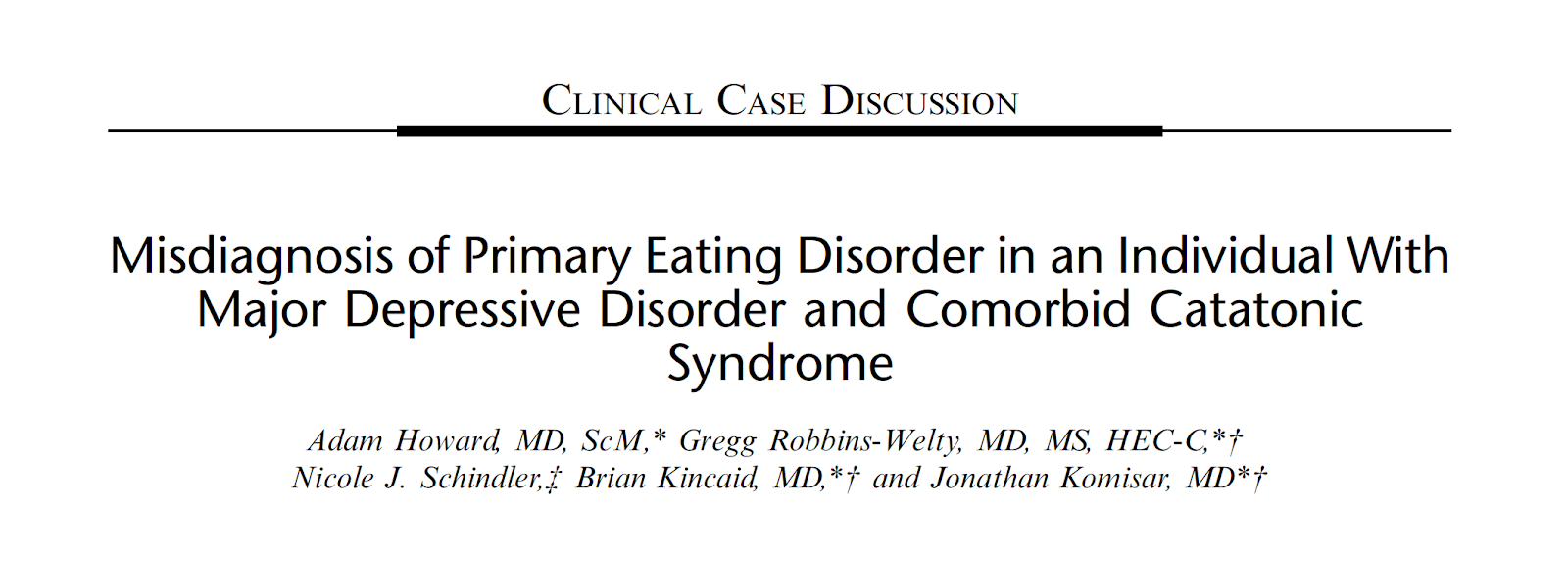Misdiagnosis of Primary Eating Disorder in an Individual With Major Depressive Disorder: Case Report of Successful ECT
Out on PubMed, from clinicians at Duke, is this case report:
Misdiagnosis of Primary Eating Disorder in an Individual With Major Depressive Disorder and Comorbid Catatonic Syndrome.
J Psychiatr Pract. 2024 Nov 1;30(6):447-448. doi: 10.1097/PRA.0000000000000825.PMID: 39655974
The abstract is copied below:Catatonia is a neuropsychiatric syndrome affecting movement, emotion, speech, and behavior, which commonly occurs secondary to medical or psychiatric disorders and with comorbid illnesses. We report the case of an 18-year-old male with a history of depression, anxiety, attention-deficit/hyperactivity disorder, polysubstance use, and previous suicide attempts who presented to the hospital from a residential eating disorders treatment facility, due to psychomotor slowing. The patient scored 3 or lower on the Bush-Francis Catatonia Rating Scale (BFCRS), but he showed marked improvement following 2 mg of intravenous lorazepam. The patient was referred for ECT, experienced dramatic improvement, and was discharged at his baseline functioning. His discharge diagnosis was catatonic syndrome secondary to severe melancholic depression. Catatonia may present a diagnostic challenge as no single catatonia screener captures all possible phenotypes. The patient consistently scored low on the BFCRS but he had a clear response to standard-of-care catatonia treatment. Psychomotor slowing is common in catatonia but is not designated as a catatonic feature in either the DSM-5 or the BFCRS. This case also presented diagnostic complexity as the patient initially presented with malnutrition and concern about a possible eating disorder. This report highlights that diagnosing catatonia is challenging, particularly in the context of medical complexity, and that there are discrepancies between diagnostic tools. When suspicion of catatonia is high, despite low individual screening scores, clinicians may consider alternative screening instruments or empiric treatment.
The report is here.
And here:
Catatonia used to be rare. Now it seems to be common. But sometimes psychomotor slowing is just psychomotor slowing, one symptom of a severe depressive episode, and catatonia does not need to be invoked. The authors' opinion is different, and they have written an interesting differential diagnostic discussion.
And it would have been helpful to have more details of the successful ECT course.





Comments
Post a Comment